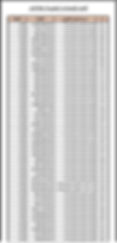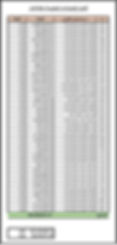THE LIBYAN OASIS

A Deep Dive into Libya's Foreign Exchange Corruption: The Case of the Gaddad Family
Aug 24, 2024
4 min read
1
179
The image attached in the article is of Mahdi Gaddad, the General Manager of Al-Sahl Holding Group, which is managed by the Gaddad family.
In Libya’s turbulent economic landscape, where the Central Bank of Libya (CBL) is supposed to be the gatekeeper of financial stability, a select group of families and companies has managed to exploit the system to their enormous benefit. This exploitation is not just a one-off occurrence but a recurring cycle that happens almost every week or two, allowing these entities to pocket millions with minimal effort. Among the most prominent examples is the Gaddad family, which has become emblematic of how certain privileged groups monopolize Letters of Credit (LCs) and manipulate the foreign exchange market for personal gain.
The Mechanism of Exploitation
Imagine you're a business owner in Libya, seeking to obtain a CBL code to execute a Letter of Credit (LC) for a modest sum—say, $1,000. In theory, this should be a straightforward process. However, in practice, the CBL often halts these procedures for most companies, reserving access exclusively for a select few. These few, often linked to powerful families or individuals with political clout, are granted access to foreign currency at the official exchange rate.
The scheme is simple yet highly effective. These privileged companies acquire dollars or euros through LCs at the official rate, often significantly lower than the market rate. They then channel these foreign currencies into the parallel market, where demand is high, and the exchange rate is much more favorable. The difference between the official rate and the parallel market rate allows these companies to make exorbitant profits in a matter of days.
The Gaddad Family: A Case Study
One of the most glaring examples of this corruption is the Gaddad family. Recently, the Public Prosecutor’s Office ordered the freezing of the accounts belonging to the Gaddad family group. This action was part of a broader investigation into a financing case involving 1.25 billion Libyan dinars from Al-Waha Bank. This move followed the detention of several bank officials, including the Chairman of the Board of Directors of Al-Waha Bank, who were implicated in the illegal granting of credit facilities worth 1.225 billion dinars. However, such measures often prove superficial. The accounts of the Gaddad family are frozen periodically, only to have the freezes lifted shortly thereafter, allowing business as usual to resume.
In the week leading up to the imposition of a 27% tax on foreign currency, the Gaddad family managed to secure over $200 million in both dollars and euros through LCs. They paid 4.8 Libyan dinars per dollar for this sum. A week later, the parallel market rate surged to 7.03 dinars per dollar. Calculating the profit, the Gaddad family made approximately 446 million Libyan dinars, which translates to around $63.71 million when converted back at the market rate. This staggering profit was earned in less than a week, with minimal effort and no value creation for the Libyan economy.


A Systemic Issue
This is not an isolated incident. The process described above repeats itself with alarming regularity at the Central Bank of Libya. Every week or two, a handful of companies tied to influential families receive LCs, enabling them to flood the parallel market with foreign currency and rake in massive profits. These profits come at the expense of the Libyan people and the national economy, as the disparity between the official and market rates widens, fueling inflation and eroding the purchasing power of ordinary citizens.
The Gaddad family is just one of many that have mastered this exploitative system. Their involvement goes beyond mere financial gain—they are also key political players, backing the continued tenure of Sadiq Al-Kabir as the Governor of the Central Bank of Libya. It is no secret that their financial muscle is instrumental in supporting Al-Kabir’s political and financial campaigns, ensuring that the status quo remains intact.
The Consequences
The implications of this systemic corruption are severe. As these privileged families and companies continue to drain the country’s foreign currency reserves, the broader economy suffers. The black market thrives, official exchange rates become meaningless, and inflation spirals out of control. Meanwhile, ordinary Libyans find it increasingly difficult to afford basic goods and services, as their currency loses value at an alarming rate.
Moreover, the Central Bank’s complicity in this process undermines public trust in financial institutions and the rule of law. As long as the CBL allows a select few to monopolize LCs and manipulate the exchange rate, the prospects for genuine economic reform and recovery in Libya remain bleak.
Conclusion
The story of the Gaddad family and their exploitation of Libya’s financial system is a microcosm of a much larger problem. It highlights how entrenched corruption, facilitated by those in power, continues to cripple the country’s economy. Until there is a genuine effort to reform the Central Bank and dismantle these corrupt networks, the cycle of exploitation will continue, with a small elite reaping enormous profits while the rest of the population bears the cost.










